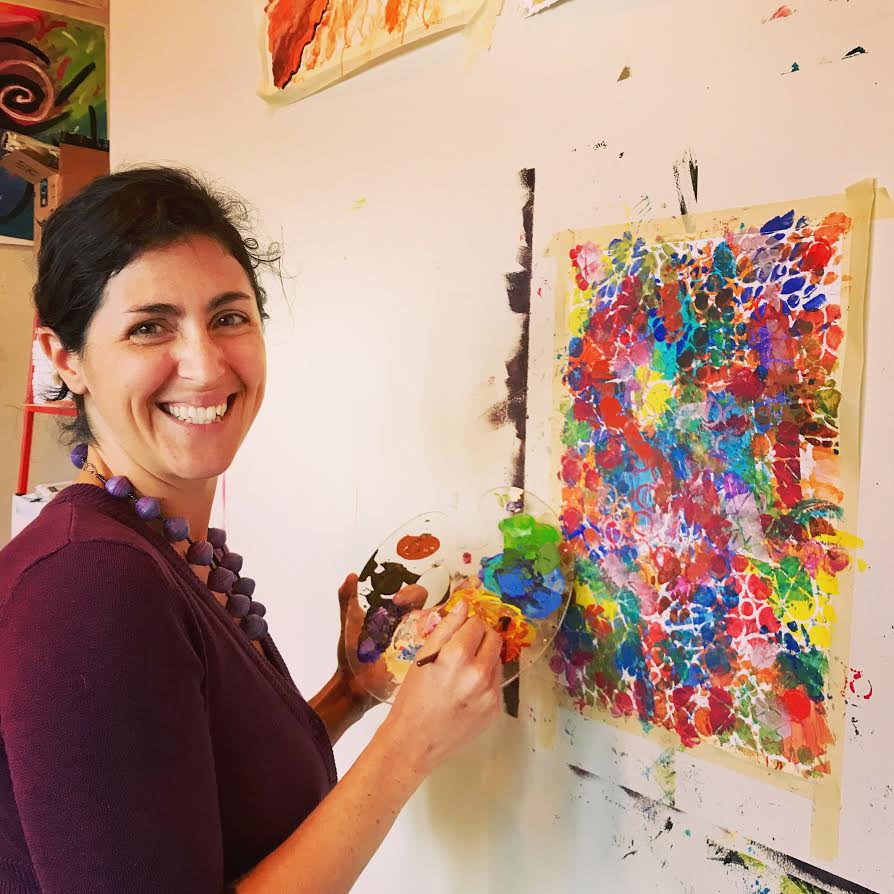Tuning into the news these days can feel like we’re trapped in a bad dream. The rollback of protections for the most vulnerable, the closing of our shores to refugees, the use of xenophobic, misogynistic, Anti-Semitic, homophobic speech by those in power and the resulting violence this has incited (to name just a few of the devastations this year has wrought) have turned our reality into a nightmare. We strive to wake up—and to wake each other up—so that we may fight for what we believe in and reverse the tide.
It often seems that those around us—and perhaps even ourselves at times—are like Jonah, the reluctant prophet who, when the storm raged against the ship he was sailing on threatening the lives of all on board, retreated down to the bowels of the boat and fell asleep. Seas swelling, fellow sailors terrified, Jonah drifts into dreamland to avoid taking responsibility. Imploring Jonah to wake up in order to save the ship, the captain shouts above the crashing torrent, “Why do you sleep?! Get up! Call out to your God!”
To awaken, as the captain demands, is to see with clear eyes what is happening around us, to understand our role, and to take action to make change. These steps are crucial to calming the tide and steering the ship we are all collectively on towards safe passage. Yet, while waking up to the reality of the world and taking action is imperative, might there also be something vital in sleep?
Sleep is the place of nightmares. It also the realm of dreams.
According to the Talmud, dreams are one sixtieth of prophecy (Berachot 57b). Maimonides, in his Guide for the Perplexed, writes that through dreams the imaginative faculty is awakened, without which prophecy is impossible (3.36-8). In the Torah, Jacob, Joseph, and Pharaoh all receive visions from the Divine through dreams. In this week’s parshah, Miketz, Pharaoh dreams of 7 healthy cows followed by 7 lean cows and 7 robust sheaves followed by 7 decimated stalks. As they are interpreted, these dreams foretell the coming periods of abundance and scarcity in Egypt and help him to prepare for what’s to come. Similarly, Jacob and Joseph both receive communications about the future through their dreams.
In dreams we detach from our conscious waking life and enter the realm of the unconscious and the imagination. Here, our body and brain rest and we are able to integrate the events that confront us during our waking hours. However, something else happens as well. According to the 18th century Italian Kabbalist and ethicist Rabbi Moshe Chaim Luzzatto, when we dream our soul enters the spiritual realm and we receive communications and insights not readily accessible otherwise (Derech Hashem 3:1:6).
While Pharaoh and Joseph both seem well-versed in the power of dreams, Jacob is more surprised. Awakening from sleep he says, “God was in this place and I did not know it.” According to Rashi, had Jacob known how holy the place was, he would not have slept.
As activists, we understand the resistance to the dreamworld. With so much to be done, dreaming can feel like a shirking of our responsibility to continually work for justice, a refusal to confront the world as it is. We seek instead to wake ourselves and our communities from apathy and inaction in order to bring about a world redeemed. However, as scholar Dr. Avivah Zornberg points out in her book The Beginning of Desire, had Jacob not slept he would not have dreamed of God and angels, would not have received his first message from God, and would not have understood the holiness of the ground on which he stood. Similarly, in our parshah, Pharaoh would not have foreseen the coming years of plenty and famine and been able to plan accordingly.
Just as Judaism provides us with a weekly rhythm of work and rest punctuated by Shabbat, as change makers, time to sleep and to dream may be as vital to the cause as taking action. As Leonardo da Vinci once wrote, “Why does the eye see a thing more clearly in dreams than the imagination when awake?” Sleep not only replenishes our energy to fight another day, it allows us to dream and, in so doing, to imagine the future that is yet to be.
Rabbi Adina Allen is co-founder and Creative Director of the Jewish Studio Project where she works to activate inherent creativity in individuals and communities to make life more meaningful, Judaism more vibrant and the world more just. She writes and teaches on the transformative power of the imagination to help us bring about a world redeemed.

